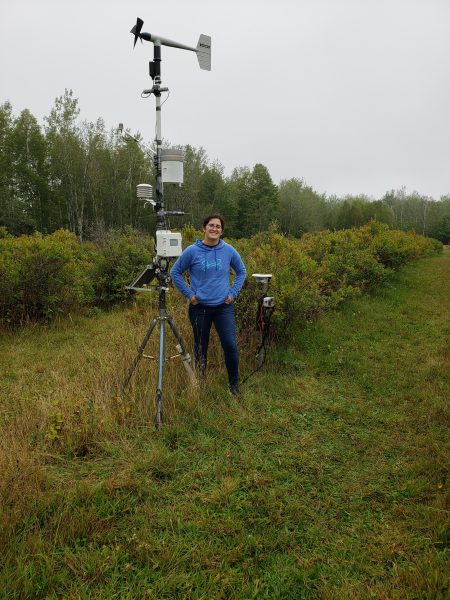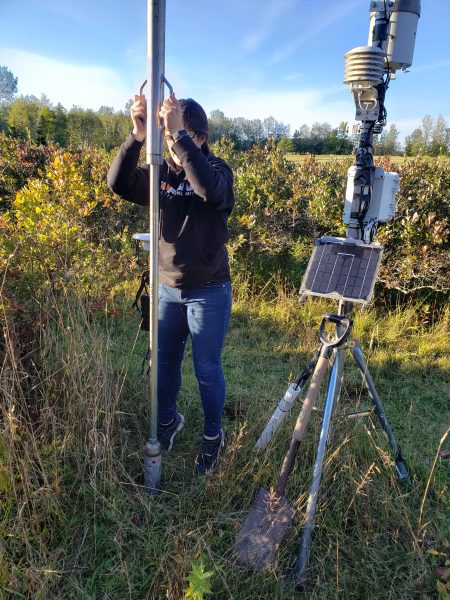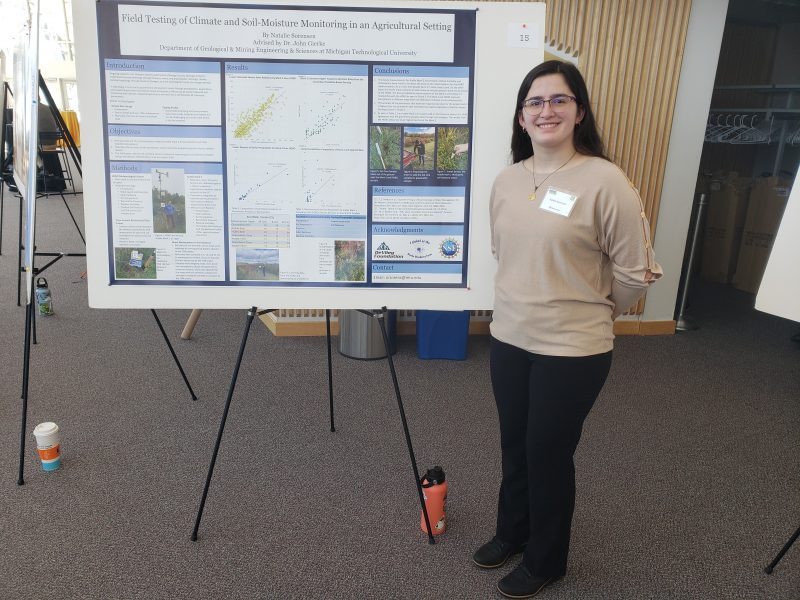Meet Natalie Sorensen, the exceptional first-year student at the Department of Geological and Mining Engineering and Sciences (GMES) who has defied the odds and conducted scientific research during her freshman year. Natalie’s project focused on helping farmers adjust their farming practices based on water availability, which is dictated naturally by climate and enhanced anthropogenically. She worked closely with Dr. John Gierke to test the Mark 2 soil moisture sensor against independent measurements of meteorological parameters and soil moisture in a local agricultural setting.
Natalie’s project was a rare feat for a freshman, as most students don’t join research until their junior or senior years. However, Natalie’s passion and dedication to the field drove her to take on this challenge early in her college career. Natalie compared data from an Arable Mark 2 weather station to data from a HOBO RX3000 weather station, which is commonly used in climate-monitoring research. To independently test the soil moisture sensors on both weather stations, she also took soil core samples to measure soil moisture using gravimetric analysis. While the results of Natalie’ study are still being analyzed, the preliminary data seem promising and compatible with the natural variability of soil properties in glacial settings.
Natalie’s work was supported by the URIP program and Dr. Gierke’s Institutional Research and Development (IRAD) for matching funds. In addition, in-kind support for the fieldwork was provided by the Gierke Blueberry Farm. Natalie presented a poster of her work at the Undergraduate Research Symposium on March 24, 2023, where she impressed her peers and professors with her research.
Natalie’s story is a testament to the power of hard work, passion, and dedication. She is a shining example of how early exposure to research opportunities can help students achieve their academic and professional goals. We look forward to hearing more about Natalie’s future research endeavors and wish her continued success in her studies within GMES.
Poster Extract
Field Testing of Climate and Soil Moisture Monitoring in an Agricultural Setting
Student Presenter: Natalie Sorensen, Geological Engineering
Faculty Advisor: John Gierke, Geological and Mining Engineering and Sciences
Farmers need to adjust their farming practices based on water availability, which is dictated naturally by climate and enhanced anthropogenically.
Data from a Mark 2 was compared to data from a HOBO RX3000 weather station (Onset, Bourne, MA), which is commonly used in climate-monitoring research, on the Gierke Blueberry Farm for the past decade.
I am still processing data to compare the Arable Mark 2 and HOBO measurements of air and soil temperatures and precipitation (along with solar intensity, atmospheric pressure, and relative humidity–the Mark 2 is not equipped to measure wind).


